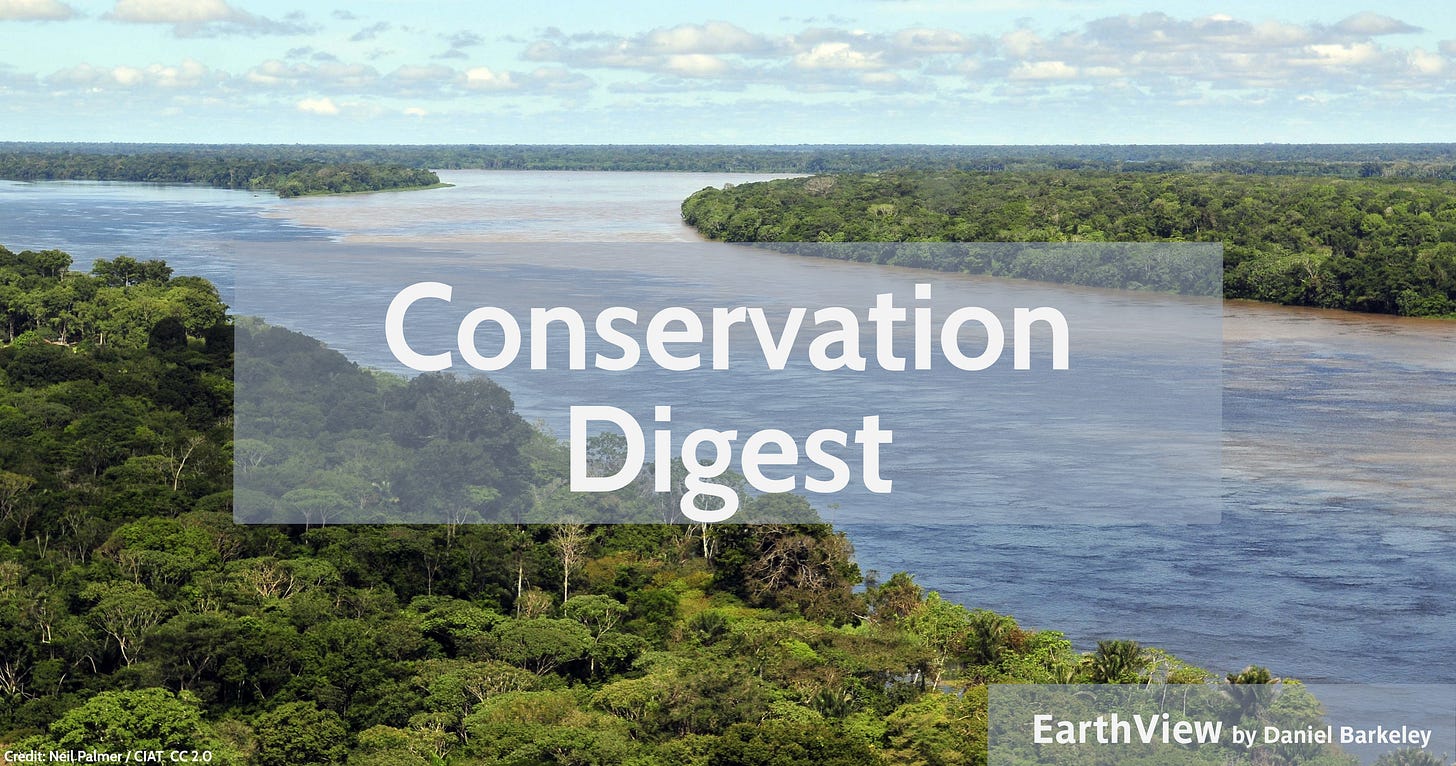New Amazon National Park | Conservation Digest
Peru has created a new protected area in the Amazon, reports Phys.org. The Medio Putumayo-Algodón is a 2,590 km² (1,000 sq mi) Regional Conservation Area in the Northeastern department of Loreto. It is intended to preserve an intact section of rainforest surrounding the Putumayo River.
Zimbabwe’s elephant conservation efforts have been so successful the animals are overflowing protected areas and creating safety concerns in population centers, says Radio France Internationale (RFI). Elephants have been known to trample crops and attack livestock or even humans. Relocation efforts are underway, but expensive.
Deforestation in the Amazon is increasingly driven by organized crime, explains the World Resources Institute (WRI). The rainforest in lawless regions is cleared for illicit cocaine farms, logging, or mining. Amazonian wildlife is also poached and sold to Chinese crime syndicates in exchange for fentanyl precursors.
The world is moving forward with global conservation efforts without the United States and the Trump administration, notes Greenpeace USA leadership in Foreign Policy (FP) magazine. Efforts to strictly regulate deep sea mining and progress towards a High Seas Treaty and a Global Plastic Pollution Treaty continue apace.
Traditional nomadic herders in Mongolia are now using satellite data to determine which grasslands are overgrazed and need to be given a rest, according to Conservation International. Local NGO Good Growth provides herders with the data, who then adjust their grazing patterns to help regenerate the landscape.
Illegal salt mining is threatening the survival of an iconic camel breed in India, warns The New Indian Express. The Kharai camel is a typical dromedary camel (camelus dromedarius) that has adapted to swimming the salty mangrove marshes of Gujarat's Kutch’s coast. This habitat has been decimated by salt miners and court orders to stop the practice have not been enforced.
A tiny bird has made a triumphant return to the New Zealand mainland, trumpets The Miami Herald. The Little Spotted Kiwi (Apteryx owenii) and known locally as ‘kiwi pukupuku’ is the smallest member of the flightless Kiwi family. It was spotted this month on mainland New Zealand for the first time since 1978, having thereafter retreated to predator-free refugia on nearby offshore islands.




